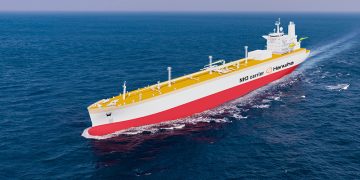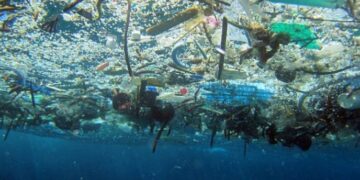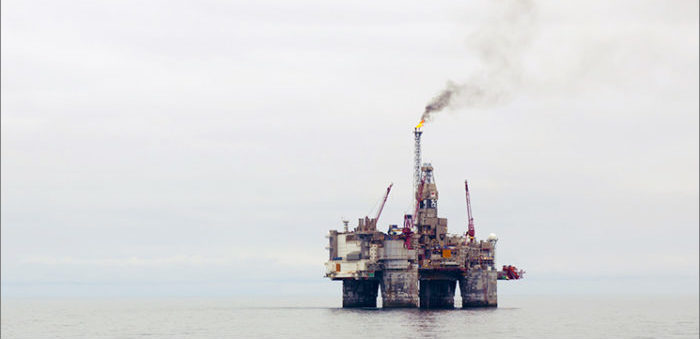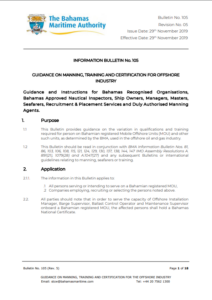The Bahamas Maritime Authority has recently issued guidance and instructions concerning the variation in qualifications and training required for people on Bahamian registered Mobile Offshore Units (MOU) as well as other such units, as determined by the BMA, used in the offshore oil and gas industry.
Notably, the bulletin aims to provide guidance to Bahamas Recognised Organisations; Bahamas Approved Nautical Inspectors; Ship Owners; Managers; Masters; Seafarers; Recruitment & Placement Services and Duly Authorised Manning Agents.
Further to this, BMA underlines that information in the bulletin applies to:
- All people serving or intending to serve on a Bahamian registered MOU,
- Companies employing, recruiting or selecting such people.
BMA highlights that
the Company employing personnel assigned to duty on MOUs has responsibility for ensuring that the standards set out in these recommendations are given full and complete effect.
Adding that other measures necessary could be taken to ensure that personnel can make knowledgeable and informed contributions to the safe operation of the MOU.
Also, the company must verify the validity and authenticity of all seafarers’ sea service, certificates and documents before applying for Bahamas certification; BMA says that this responsibility remains irrespective of the company using a recruitment and placement agent to submit seafarers’ documents.
[smlsubform prepend=”GET THE SAFETY4SEA IN YOUR INBOX!” showname=false emailtxt=”” emailholder=”Enter your email address” showsubmit=true submittxt=”Submit” jsthanks=false thankyou=”Thank you for subscribing to our mailing list”]
The company and the OIM should also ensure that all persons joining a unit are immediately given appropriate familiarization training with respect to the unit for emergency, safety and security in addition to their respective duties and functions.
More specifically, when attached to the seabed, the company and the OIM of a unit shall ensure that watch standards and arrangements are always maintained in order to ensure the safety of the unit, and consultation should be made with the relevant coastal state. When they are not attached to the seabed, self-propelled MOU’s shall maintain watchkeeping standards as outlined in the STCW Convention Chapter VIII.
BMA adds the responsibility of the company to ensure that the unit is sufficiently manned in compliance with the manning levels documented on the Minimum Safe Manning Document (MSMD) by properly qualified, certificated and medically fit seafarers.
In relation to manning requirements and in determining the MSMD for a unit, the company can take into consideration the Bahamas guidelines concerning
- maintain safe watches and maintain general surveillance of the Unit;
- manage the safety functions of the Unit;
- perform operations, as appropriate, for the prevention of damage to the marine environment;
- maintain the safety arrangements and the cleanliness of all accessible spaces to minimize the risk of fire;
- provide for medical care on board the Unit;
- ensure safe cargo operation including carriage of cargo during transit;
- inspect and maintain, as appropriate, the structural integrity of the Unit;
- operate in accordance with the approved Security Plan; as well as
The ability to
- deploy a competent damage control party;
- operate all onboard fire-fighting and emergency equipment and lifesaving appliances, carry out such maintenance of this equipment as is required to be done at sea, and muster and disembark all persons on board; and
- for self-propelled units operate the main propulsion and auxiliary machineries including pollution prevention equipment and maintain them in an operational condition to enable the ship to overcome the foreseeable perils of the voyage.
Some onboard functions can include
- ongoing training requirements for all personnel, including the operation and use of fire-fighting and emergency equipment, life-saving appliances and watertight closing arrangements;
- specialized training requirements for particular types of Units and in instances where members of personnel are engaged in onboard tasks that cross departmental boundaries;
- provision of proper food and drinking water
- need to undertake emergency duties and responsibilities;
- provision of training opportunities for entrant personnel to allow them to gain the training and experience needed.
Other relevant factors consist of
- performance of functions at the appropriate levels of responsibility;
- operation of the unit and care for persons on board;
- cargo handling;
- electrical, electronic and control engineering requirements;
- Radio communications;
- the management of safety, security and protection of the marine environment;
- the number of qualified and other personnel required to meet peak workloads situations.
Lastly, for all applicants other than Bahamian Nationals (via the Nassau Office), the BMA requires that applications are submitted using the Bahamas Online Registration Information System (BORIS).
Recently, the Bahamas Maritime Authority issued guidance for safe manning requirements, reiterating that SOLAS Regulation V/14.2 and Merchant Shipping (Training, Certification and Manning) Regulations 2012 require ships to be provided with a Minimum Safe Manning Document (MSMD), as well as a bulletin providing all relevant parties with guidance on the medical examination and certification requirements for seafarers in accordance with the Bahamas Merchant Shipping Act, STCW as amended and ILO MLC (2006) requirements.
It is not long ago when the US Department of the Interior’s (DOI) Bureau of Safety and Environmental Enforcement (BSEE) released the final improved Blowout Preventer Systems and Well Control regulations. BSEE’s final Well Control Rule claims that it removes unnecessary regulatory burdens to responsible offshore development while maintaining safety and environmental protection.
Specifically, the improvements to requirements for Blowout Preventer (BOP) design and testing include:
- Limiting the number of connection points to the BOP, reducing the number of potential failure points;
- Equipping each BOP with a high-flow receptacle to ensure faster delivery of fluid to perform the function from a Remotely Operated Vehicle (ROV);
- Requiring an array of rams, which are steel covers designed to close rapidly around and over a drill pipe to stop the flow of hydrocarbons, with specific capabilities, allowing the most effective use of each ram type and maximizing functionality;
- Improving the expected lifespan of a critical BOP component by specifying a testing methodology that provides a readiness check without putting unnecessary wear and tear on the component.
To find out more about the BMA guidance bulletin for the offshore industry, click on the PDF bellow.
































































